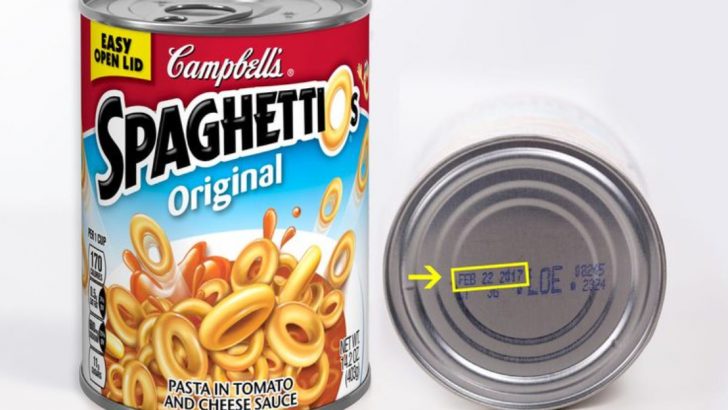Canned foods might seem safe on your pantry shelf, but history tells a different story.
Over the years, numerous canned food products have been yanked from store shelves due to contamination, foreign objects, or packaging failures.
These recalls not only threatened public health but also shook consumer confidence in what was once considered the ultimate shelf-stable food option.
1. Botulism In Bon Vivant Soup (1971)
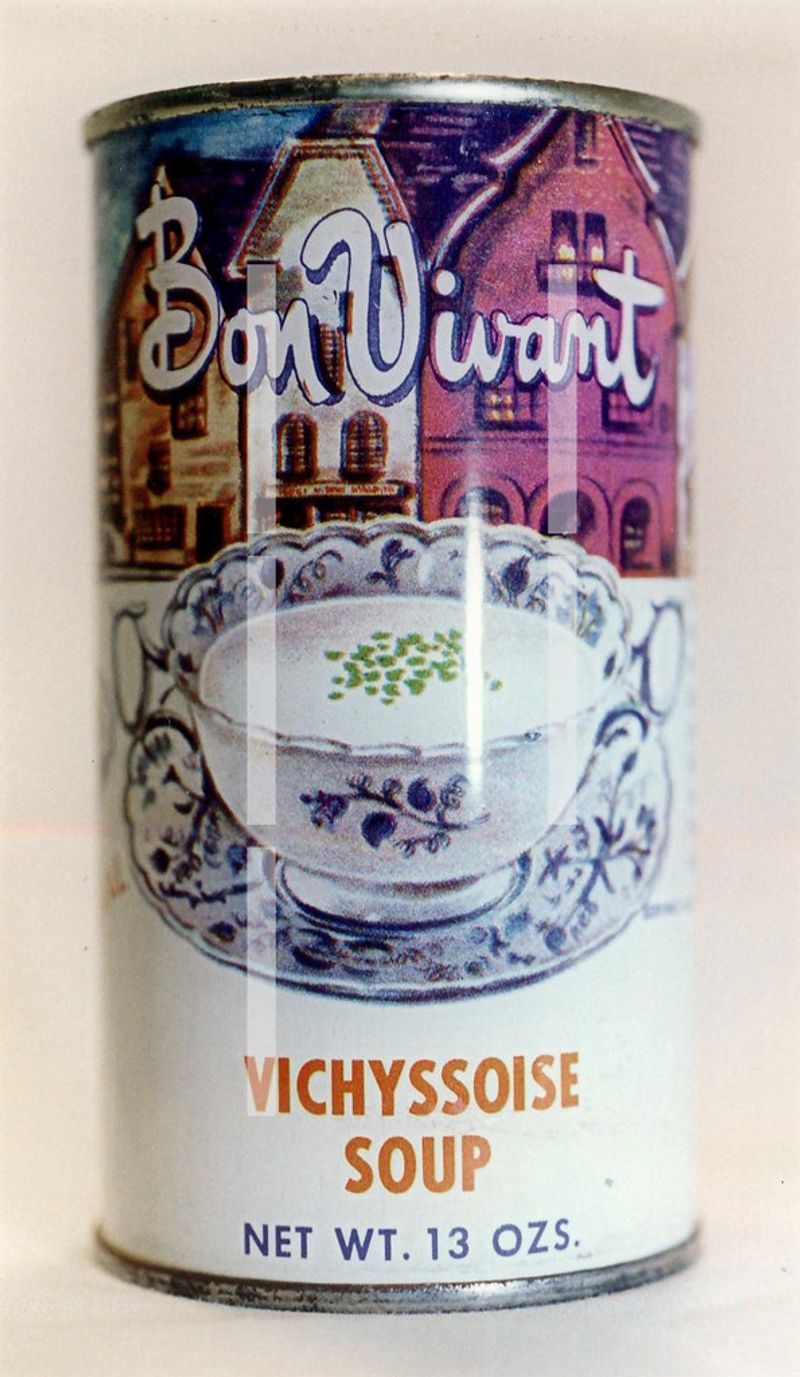
Remember when a single can of vichyssoise brought a company to its knees? The FDA discovered deadly botulism toxin in Bon Vivant’s canned soup, leading to one death and several illnesses.
Within 24 hours, the company recalled over a million cans, but the damage was done. Bon Vivant declared bankruptcy just weeks later, proving how quickly food safety issues can destroy decades of business.
2. The Great Castleberry’s Chili Scare (2007)
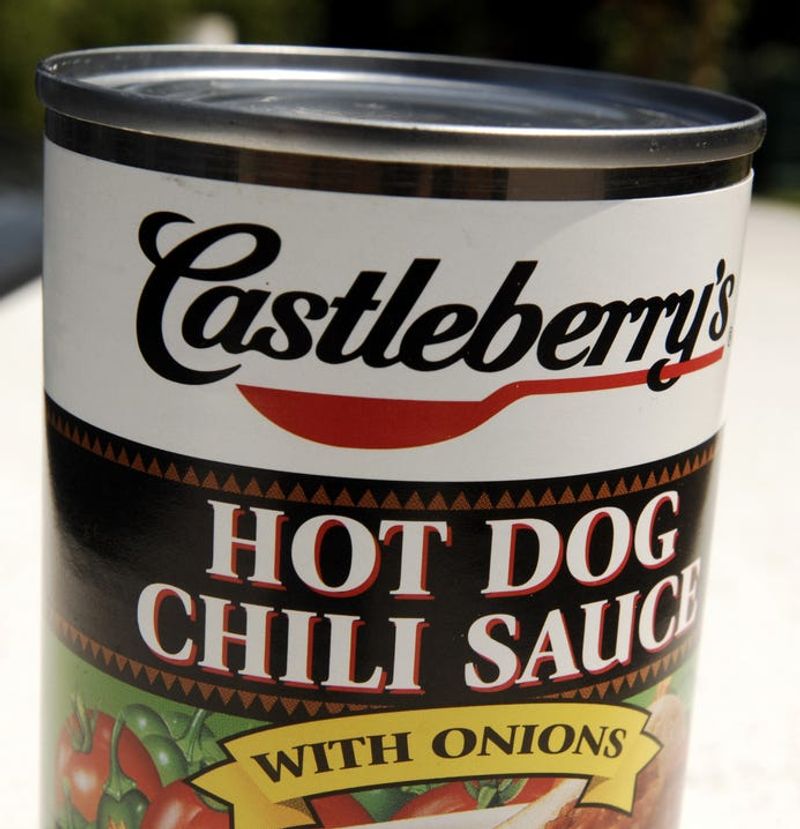
Imagine this: a processing slip-up at Castleberry’s Food Company sparked one of the biggest canned meat recalls ever, as faulty gear let deadly botulism sneak into their chili and other meat goods.
Though only four confirmed cases of illness occurred, the company recalled over 90 different products totaling millions of cans. Consumers frantically checked their pantries nationwide while health officials warned about the dangers of bulging cans.
3. Bumble Bee Tuna’s Pressure Cooker Tragedy (2013)
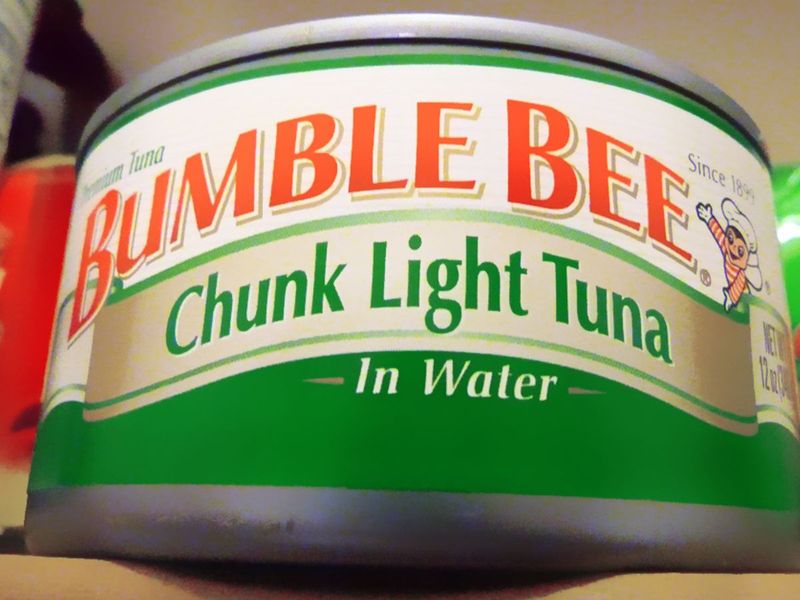
Ever wondered how workplace accidents impact food safety? In 2013, Bumble Bee Foods faced both tragedy and scandal when a worker was accidentally cooked inside an industrial pressure cooker.
Following this horrific incident, the company recalled 31,000 cases of tuna over fears of contamination and improper processing. The company later paid $6 million in settlements for safety violations, forever changing their production protocols and corporate reputation.
4. Glass Fragments In Campbell’s SpaghettiOs (2015)
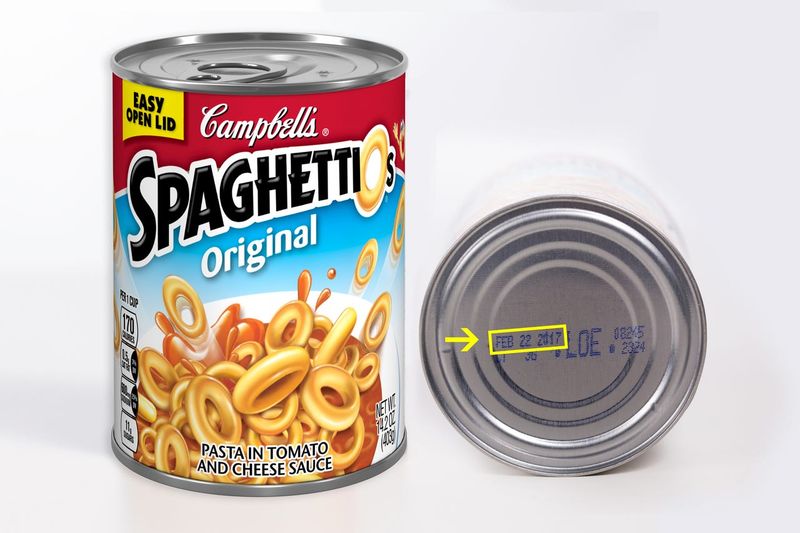
Crunch, crunch – but not the kind you want! Campbell’s recalled 355,000 cans of SpaghettiOs in 2015 after discovering pieces of red plastic from the can lining had broken off into the pasta.
Though no injuries were reported, the company took immediate action when consumers reported finding these unexpected “ingredients.” Parents across America checked their pantries, worried their kids’ favorite quick meal might contain dangerous shards that could cause serious internal injuries.
5. The Swollen Underwood Deviled Ham Disaster (1982)
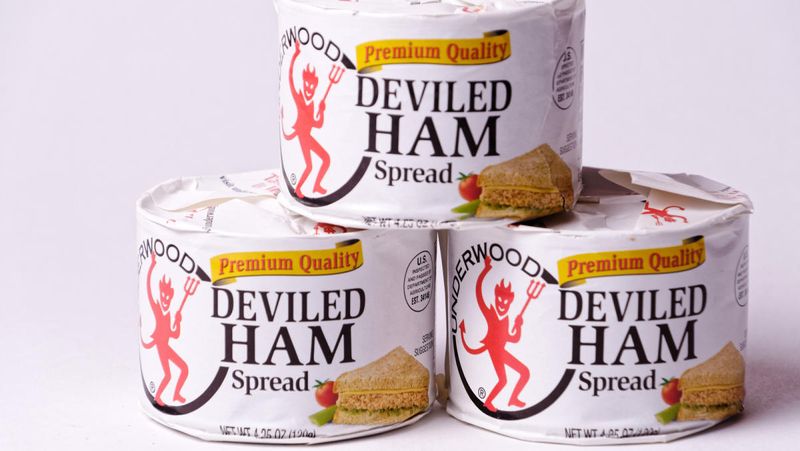
Holy ham! In 1982, Underwood’s iconic devil-labeled potted meat products became the center of a nationwide panic when cans began mysteriously swelling on shelves.
Investigators discovered bacterial contamination had created gases inside the sealed containers. The recall affected millions of cans across 40 states! Grocery stores scrambled to pull products while consumers learned a valuable lesson: if your can looks pregnant, toss it immediately!
6. Armour Star’s Metal Fragment Fiasco (1999)
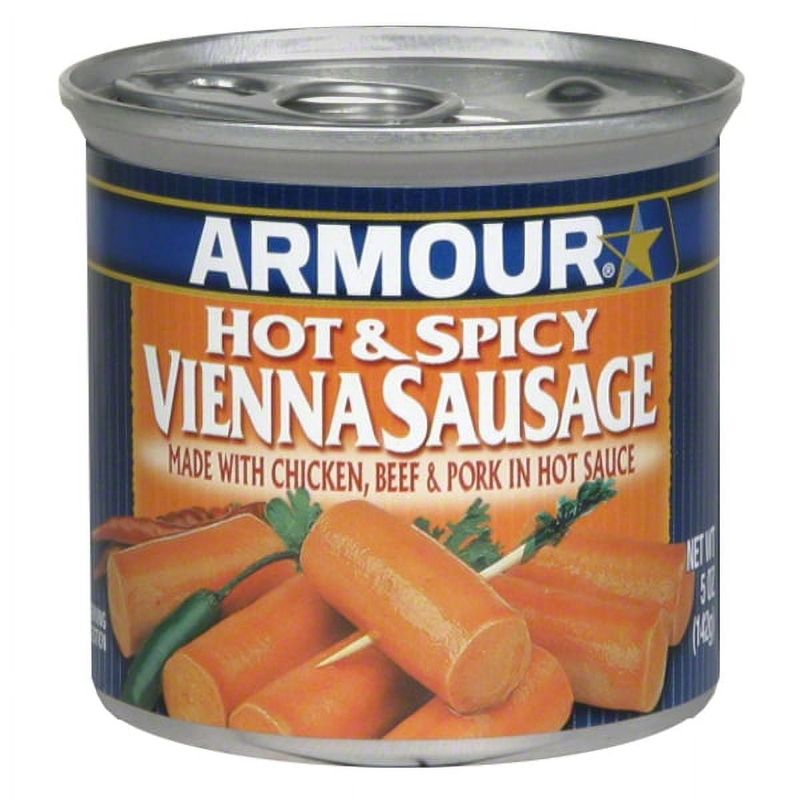
Imagine biting into your Vienna sausages and crunching down on metal shards! That nightmare scenario prompted Armour Star to recall over 840,000 cans of their tiny tubular treats in 1999.
Factory equipment failure had introduced metal fragments into thousands of cans. Though relatively few injuries were reported, the company’s reputation took a serious hit. Metal detectors became standard equipment in their production facilities afterward – better late than never!
7. Dinty Moore’s Unwanted Rubber Additions (2010)
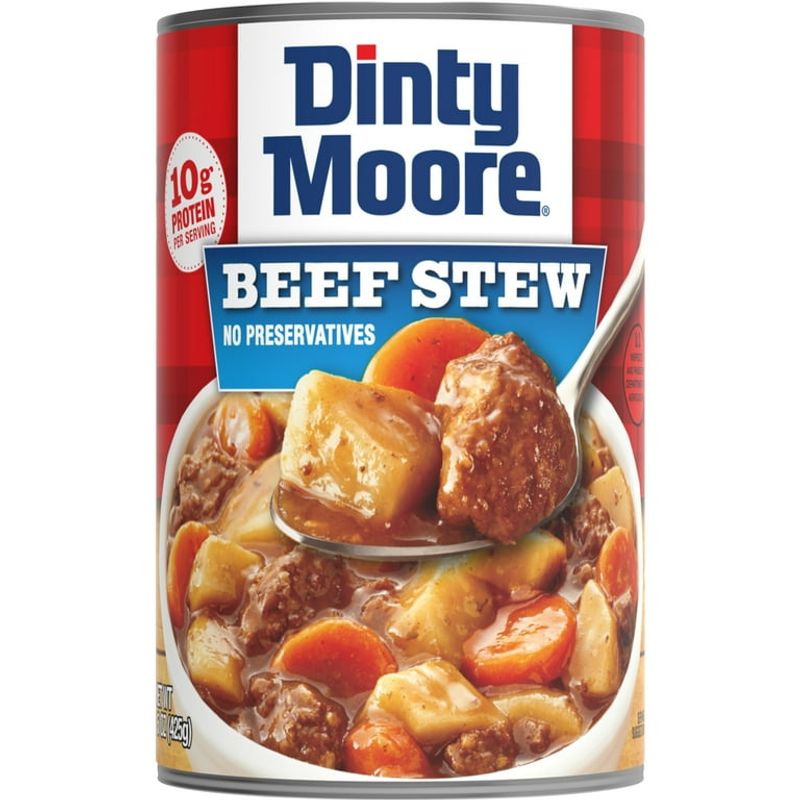
Rubber bands aren’t supposed to be part of a hearty stew! Hormel Foods learned this lesson the hard way when they recalled thousands of cans of Dinty Moore beef stew in 2010.
Factory workers discovered pieces of rubber gasket material had fallen into the product during processing. While no injuries were reported, the company faced significant financial losses and embarrassment. Consumers joked about getting “more bounce for their ounce” in their comfort food.
8. Salmonella In Canned Jalapeños (2008)
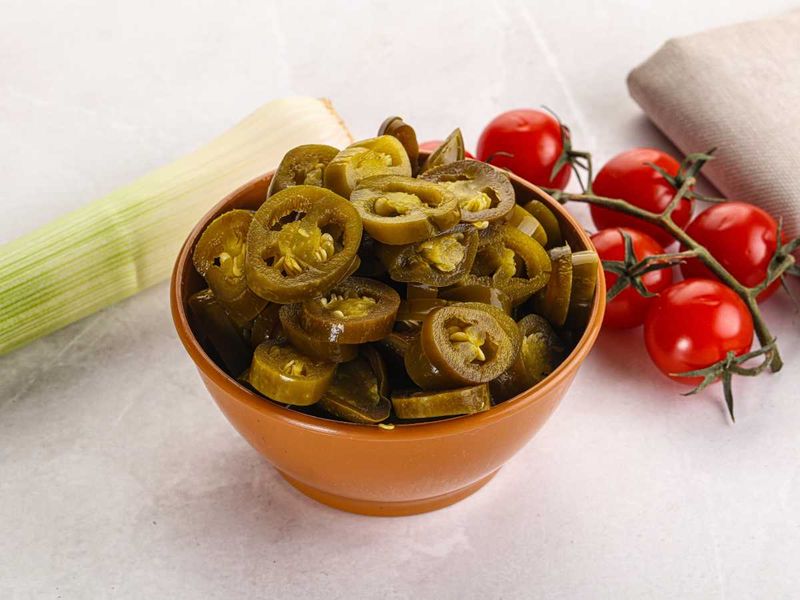
Fiery peppers packing more heat than expected! In 2008, a massive salmonella outbreak initially blamed on tomatoes was eventually traced to canned jalapeños imported from Mexico.
The contamination sickened over 1,400 people across 43 states, leading to the largest food safety investigation in FDA history at that time. The recall highlighted serious gaps in food import inspections and prompted new regulations for international suppliers. Spicy lesson learned!
9. Libby’s Exploding Pumpkin Cans (1975)
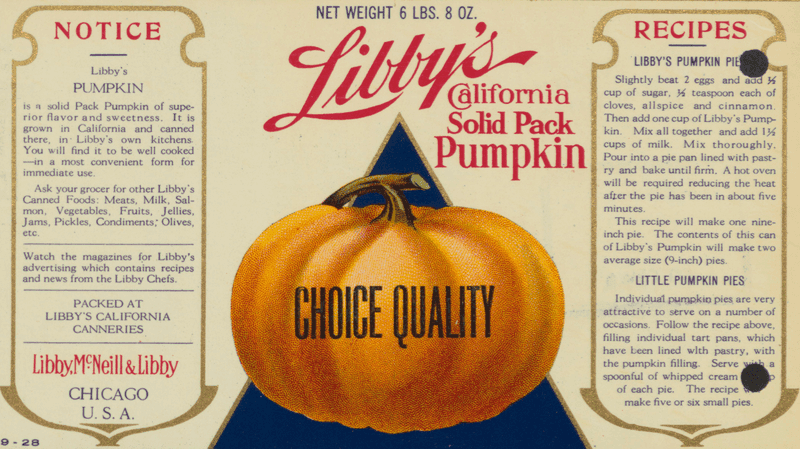
Pumpkin pie season turned explosive in 1975 when Libby’s recalled millions of cans of pumpkin purée after reports of cans spontaneously bursting open on store shelves!
Improper processing had allowed bacteria to create gas pressure inside the sealed cans. Thankfully, no serious injuries occurred, but countless Thanksgiving celebrations were disrupted. Grocery store workers dubbed it “the pumpkin cannon season” as they cleaned up orange splatters from aisles nationwide.
10. Deadly Olives From Spain (1991)
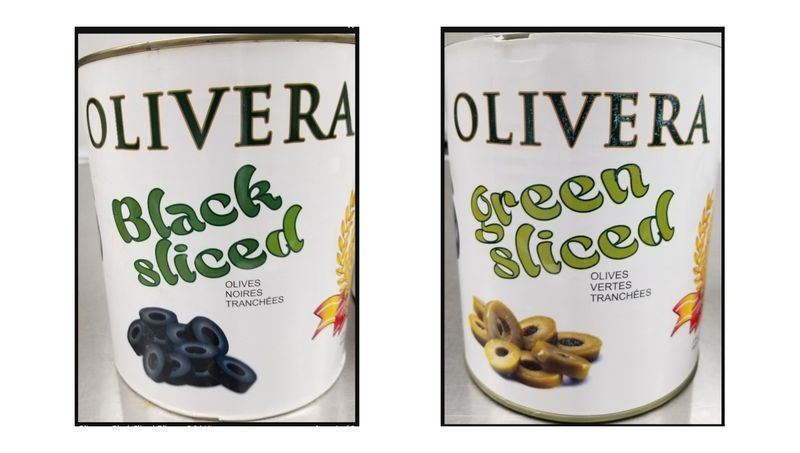
Who knew those innocent-looking olives could harbor such danger? In 1991, imported Spanish olives caused a deadly botulism outbreak that killed one person and hospitalized several others in the United States.
Investigators discovered inadequate processing allowed the deadly toxin to develop in the sealed cans. The FDA subsequently implemented stricter regulations for imported canned goods. Olive lovers became much more cautious about the source of their martini garnishes!
11. The Bush’s Baked Beans Defective Side-Seam (2017)
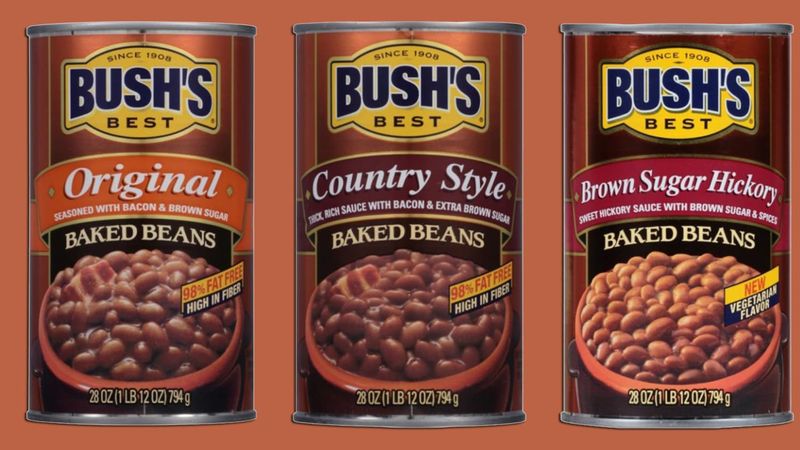
Even Duke the Dog couldn’t save Bush’s Beans from this embarrassing recall! In 2017, the company voluntarily pulled multiple varieties of their popular baked beans due to defective side seams in the cans.
These manufacturing defects could potentially allow harmful bacteria to enter the supposedly sealed containers. Though no illnesses were reported, millions of American barbecues and cookouts had to find alternative side dishes that summer. The company’s famous golden retriever mascot kept a low profile during the scandal!
12. Chef Boyardee’s Unlabeled Allergens Crisis (2019)
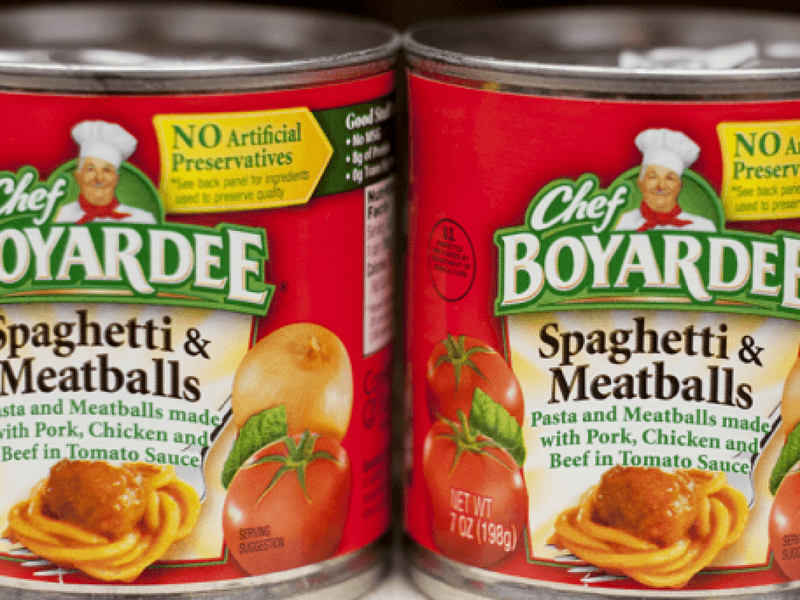
Mamma mia! Conagra Brands recalled over 700,000 pounds of Chef Boyardee microwavable bowls in 2019 after discovering they contained milk – a major allergen – not declared on the label.
For people with dairy allergies, this oversight could have caused life-threatening reactions. The recall highlighted the critical importance of accurate food labeling in an era of increasing food allergies. Parents nationwide frantically checked their kids’ favorite after-school snacks for the affected batch codes.
13. Progresso’s Surprise Chicken Bone Fragments (2016)
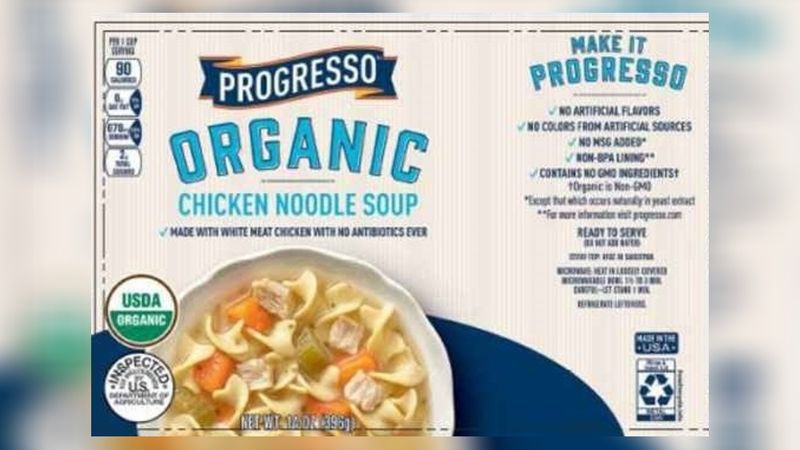
Slurping soup shouldn’t involve dodging bone shards! In 2016, General Mills recalled nearly 3 million cans of Progresso Soup after consumers reported finding unexpected chicken bone fragments in their supposedly ready-to-eat comfort food.
Though no serious injuries occurred, the company faced significant backlash on social media. One Twitter user quipped, “I ordered soup, not a chicken anatomy lesson!” The incident prompted changes in meat processing procedures at their production facilities.
14. Del Monte’s Botulism Threat In Green Beans (2007)
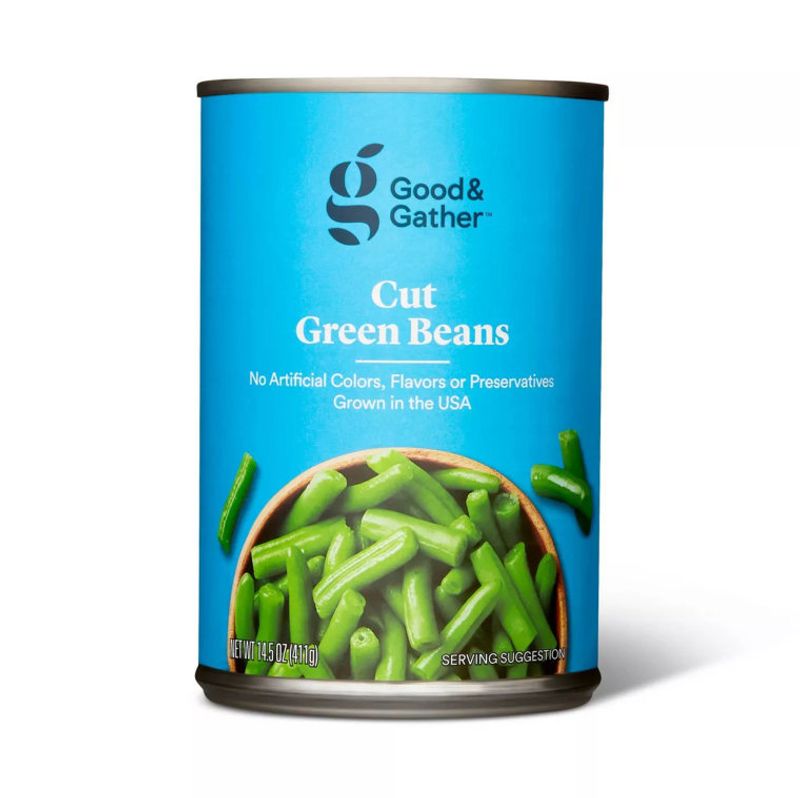
Grandma’s green bean casserole recipe took a dangerous turn in 2007 when Del Monte recalled over 64,000 cases of their cut green beans due to potential botulism contamination.
Inspectors discovered under-processing at their production facility, which could allow deadly bacteria to grow inside the sealed cans. Though no illnesses were reported, the incident reminded consumers that even trusted brands can have serious manufacturing errors. Holiday meal planners scrambled for alternatives nationwide!

